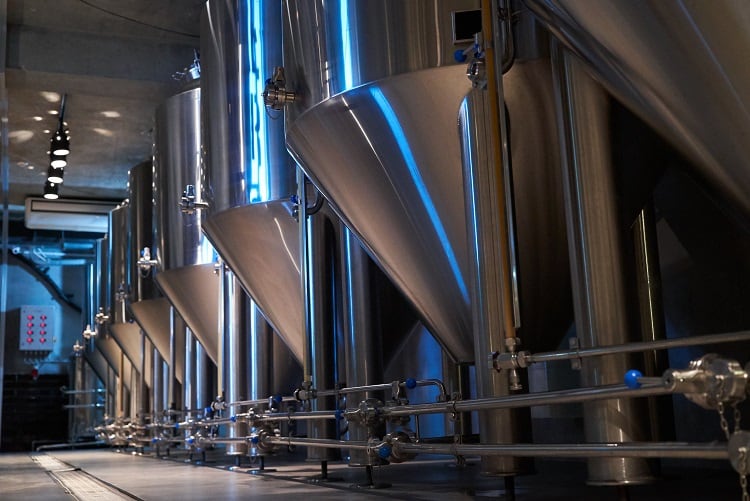Fermentation has been used for thousands of years to produce food. In the twenty-first century, however, researchers have found that it is a flexible and effective way to develop meat and dairy analogues.
In recent years, it has been utilised for a range of animal-free products, which include meltable plant-based cheese, vegan food colouring, and ‘carbon negative’ meat.
Now, the UK Government has pledged to invest £12mn into the Microbial Food Hub, a research hub for fermentation-based foods in Imperial College, London through UK Research and Innovation (UKRI), its investment arm.
"Fermentation has been used in food production for thousands of years, and precision fermentation has already been used for decades,” Linus Pardoe, UK policy manager for international think tank and nonprofit the Good Food Institute Europe, told FoodNavigator.
"Its use in alternative proteins is still at an early stage, but initial research suggests that nearly 79% of consumers are willing to try cheese made using precision fermentation while focus group research has found that consumers in countries including the UK are interested in the expanded choice it can offer them."
Different types of fermentation
Imperial College’s hub will engage with three different types of fermentation:
Traditional fermentation is the process of changing food through microbial transformation. It uses plant or animal products to enhance the flavour, nutrition or texture of food. Often used for beer, wine, yogurt and cheese.
Biomass fermentation uses the rapid growth of microorganisms, as well as their high protein content, to make large amounts of high protein food. The microorganisms in this method are themselves the food source.
Precision fermentation uses microorganisms as production factories to produce specific ingredients. This is the way in which rennet for cheese is made, as well as proteins, flavour molecules, enzymes, pigments, vitamins, and fats for plant-based analogues.
Investment into alternative proteins
In its recent National Vision for Engineering Biology whitepaper, the UK government pledged to back alternative proteins by creating ‘regulatory sandboxes’, which are tools to allow companies to test out new ideas under the supervision of a regulator. The government also pledged to aim at reducing infrastructure shortages.
This came after its announcement of plans to open an alternative protein research hub, into which £15m will be invested, in order to explore, alongside fermentation, plant-based meat, cultivated meat, novel aquaculture, and even seaweed and insect protein.
The funding was announced as one of six engineering biology mission hubs in the UK (see boxout). While it is based in Imperial College London, experts from the University of Reading, the University of Kent, the University of Aberystwyth, the University of Cambridge and Rothamsted Research will also be involved.
A fermentation future
What challenges in fermentation does the project hope to overcome? “We will work on the three types of fermentations and will be developing state of the art engineering biology techniques to improve fermentation processes and decrease their costs,” Dr. Rodrigo Ledesma-Amaro, who will lead the project, told FoodNavigator.
“We will work in many projects, each with different products in mind, some of them will be food ingredients and others food themselves. We will also work with a variety of microorganisms (fungi, yeast, bacteria, and microbial communities).”
The hub will also study the energy intensity of each process, which is a key part of making it sustainable. Energy intensity depends, according to Ledesma-Amaro, on which fermentation technique is used. “We will (also) incorporate Life Cycle Analysis and Techno Economical Analysis in our projects,” he assured us.
Infrastructure shortages
According to the Swiss start-up Planetary, there is a serious shortage in fermentation of the infrastructure to develop plant-based analogues. While there are 246 facilities around the world in more than 40 countries, there is nonetheless a shortage in the ‘correct’ infrastructure for fermentation, with many existing facilities being ex-pharmaceutical.
The project will also involve the private sector. “The Hub will interact with both startups and large companies who are already working or which want to start work on microbial foods and these interactions will be bilateral, both sides getting benefit - e.g. the companies can get access to state of the art equipment, talent and knowledge and the Hub can get industry guidance and advice, to ultimately facilitate commercialisation of novel microbial food products,” Ledesma-Amaro told us.
“We want to be the place to go for microbial food related research and translation. We want to lead innovation in this space, create new science and products, and want to help startups and established companies to overcome their challenges in fermentation," he concluded.





